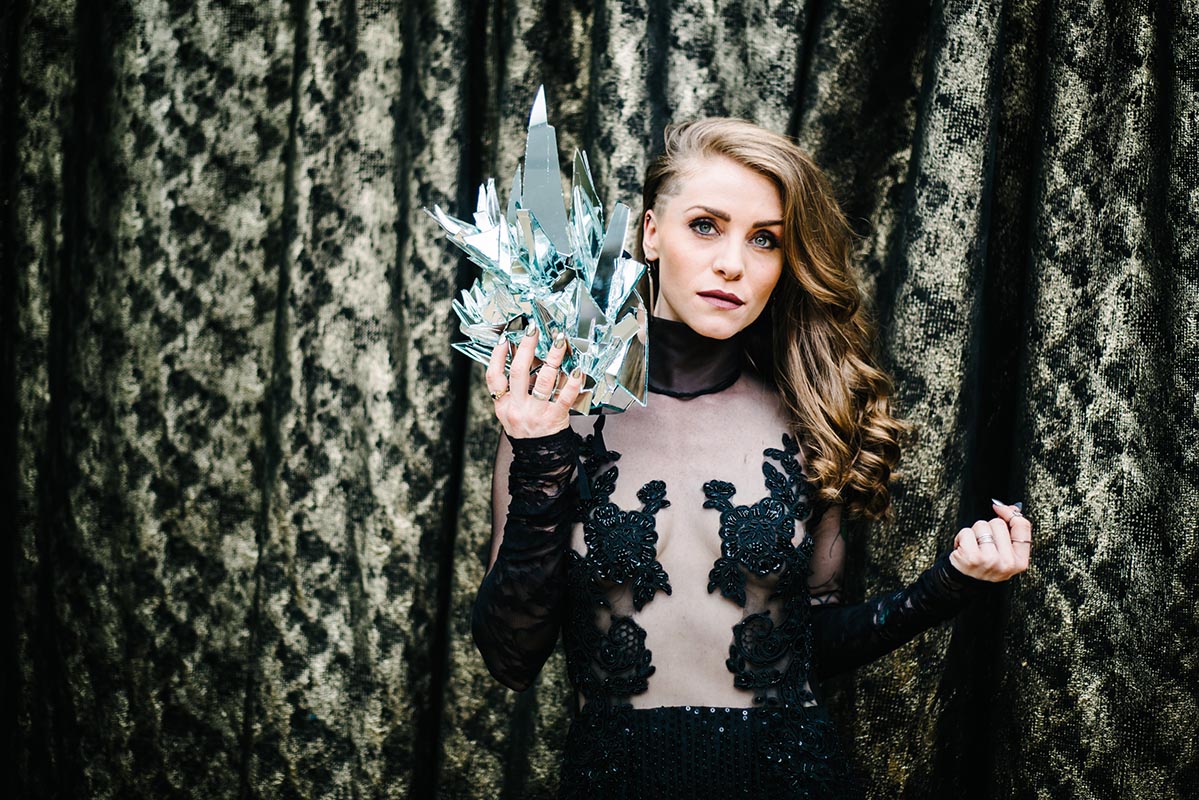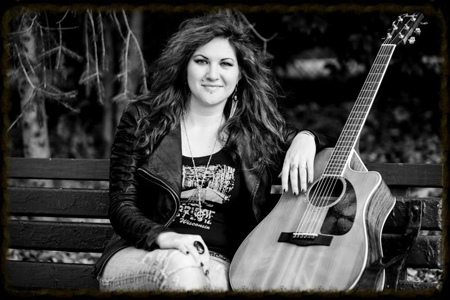 Sydney Wright is a live sound engineer and singer-songwriter now working in Austin, Texas. Her songs reach for deep emotions and leave the listener with an abiding sense of joyful hope. Her debut album, Seiche (watch the enthralling video of her song “You Can Stay” here) is set for release on November 9. Wright was recently kind enough to answer our questions about her youth and the series of events leading up to the completion of her first album.
Sydney Wright is a live sound engineer and singer-songwriter now working in Austin, Texas. Her songs reach for deep emotions and leave the listener with an abiding sense of joyful hope. Her debut album, Seiche (watch the enthralling video of her song “You Can Stay” here) is set for release on November 9. Wright was recently kind enough to answer our questions about her youth and the series of events leading up to the completion of her first album.
What kind of childhood did you have?
I grew up in a very safe, loving environment. I lived my whole life in rural west Texas, mostly in a town called Snyder with my parents and three sisters. We grew up across from the city park and baseball fields, on a street with lots of kids our age. We called ourselves “the hood” like real bad-asses, and our block was the destination for baseball games, parades, carnivals, and point A for a game of cops and robbers (you run on foot from your friends in cars — totally safer than it sounds).
What role did music play in it?
We grew up listening to the Grand Ole Opry with my dad. We used to sit in a circle around him while he sang and played rock riffs and bluegrass tunes to us. Like most of the ladies in my family, my sisters and I took piano lessons and played organ and keys for church functions. That’s where I learned to sing harmony. My mom has a killer ear for harmony, and I’d sing along with her at church. I played my first gigs at a BBQ place for tips and a steak when I was 16. Around that time I started writing songs for myself and for friends who needed a therapeutic breakup-song session. That’s when I fell in love. Song writing is my boyfriend.
My sisters and I performed in countless recitals and competed in festivals playing classical, blues, ragtime, hymns, and duets for competition. Our teacher was really into it. At around 15, I asked Mom if I could quit taking piano lessons and learn guitar instead. Thus began my journey into singing and song writing. Along the way I’ve learned or taught myself guitar, sound engineering, recording, drums, and any other instrument or mouth sound I need to make for the music.
Who — or what — in your life was the best influence on you as an artist?
Playing in bands. It wasn’t comfortable. It guided me to going solo and learning to loop.
As a human being?
Listening.
What does music mean to you?
It’s my favorite outlet for expression and connection. Many of my songs are stories I make up, made up, or have narrated to me by others. I like to create with other people in mind. I want to share. I want my output to be for all of us.
Why did you choose to become a sound engineer?
I got tired of waitressing and all my friends were doing it. It’s a great skill to know as an artist, especially when I’m recording or performing.
What do you like best about your debut album so far?
I’ve liked making music videos to support the songs the best. It’s guided me to learn several new skills and expanded the ways I get to express.
Did anything funny or weird happen while you were recording it?
I learned a lot more Spanish and made a lot of friends from Mexico. I met my producer and engineer, Stefano Vieni and Alex Ponce, at Sonic Ranch. I got to finish up vocals at their studio in Mexico City, where I stayed for nine-ish days. I also loved getting to record at Sonic Ranch. It definitely sets a high bar for incredible gear and a creative atmosphere. Sonic Ranch is also a pecan ranch with rows of peaceful pecan trees. It also runs right up to the border of Mexico. When I needed a break, I’d grab a bike and pedal over to the border fence. It’s big and formidable, and it looks like fear.
What’s the story behind the song “Seiche?”
“Seiche” is the title-track to my forthcoming album! It’s a French word meaning “to sway back and forth.” Hydrologists use it to describe a surfing wave on top of a lake. They’re unnatural under normal conditions, and they’re caused by violent, sudden changes in atmospheric pressure or seismic activity. It forces the water to slosh back and forth to regain equilibrium.
How has Austin helped you as a music maker?
This city is supportive to its musicians. That’s why we flock to it. Being surrounded by artists could harbor a community of competition, but here I’ve only felt solidarity. The high volume of musical acts is inspiring and challenges me to move further faster.
If you don’t mind, could you tell us about the accident you were in recently?
I got knocked off a scooter in a hit and run a few months ago, and at this point I’m working on walking again. It’s been difficult being weak and even more difficult to be seen as such. It’s been a heavy test in mental strength, patience, and resilience, and I’m fortunate to be very loved and able to make a full recovery eventually.
I’m also very fortunate that this is the most traumatic experience I’ve ever worked through. I’ve been both miserable and uplifted, and I know it’s something that has incited growth that I may never have known if it hadn’t happened.
What life lessons, if any, were you able to draw from this?
It made me much more aware of handicap accessible spaces. I didn’t realize before that walking is a huge freedom. It has made me more empathetic to trauma. Apart from the physical shock, sudden changes that make one’s normal actions impossible from one day to the next is taxing mentally and emotionally. It may be too soon to know what I’ve learned.
I’m only in the beginning of recovery. These are just tiny green buds of growth.
How do you regenerate after giving yourself heavily to the music?
I usually spend time with other humans. When I’m working on music I sequester myself heavily. After I get over a productive hump I like to reconnect with my friends.
What conditions do you need in your life in order to maintain your creative output?
I need to be physically active so that my brain can wander. I have to make myself work on several projects a day based on time instead of completion. I find that I get more done faster by allotting each project a finite amount of time each day instead of plowing away at one thing for hours until it’s done.
Are there any books, albums, or films that have influenced your work?
Yeah, all of them. I like to use them as research for expression. For instance, in the “Seiche” music video my friend Charlotte played the part of the “transcended dance queen.” For her character I wanted to portray someone who is very aware of who she is, where she stands, and how she connects to the world.
I gave her a “kirituhi” (skin marking) on her chin as a signifier of that. I fashioned it after a “moko” which is an identity tattoo of the indigenous people of New Zealand, the Maori. It is sacred scarring and can represent a Maori person’s social status, ancestry, cultural affirmation, and even personality traits.
It’s a visual language that inspired me through this episode of Waka Huia (documentary series about Maori history and stories). It’s about a female tā moko artist, Paitangi Ostick, who practices the art and wears the mark of a Maori warrior, both of which are unusual and even considered taboo for women.
Do you follow a spiritual discipline that helps you stay balanced?
I believe I’m a creation. I pray to my creator and use yoga as a meditative tool.
If you had an artistic mission statement, what would it be?
Make the most.
What’s next for you?
Next up is my album release coming up on November 9. I’m very excited to get it out and figure out how I’m gonna start recording the next batch!


